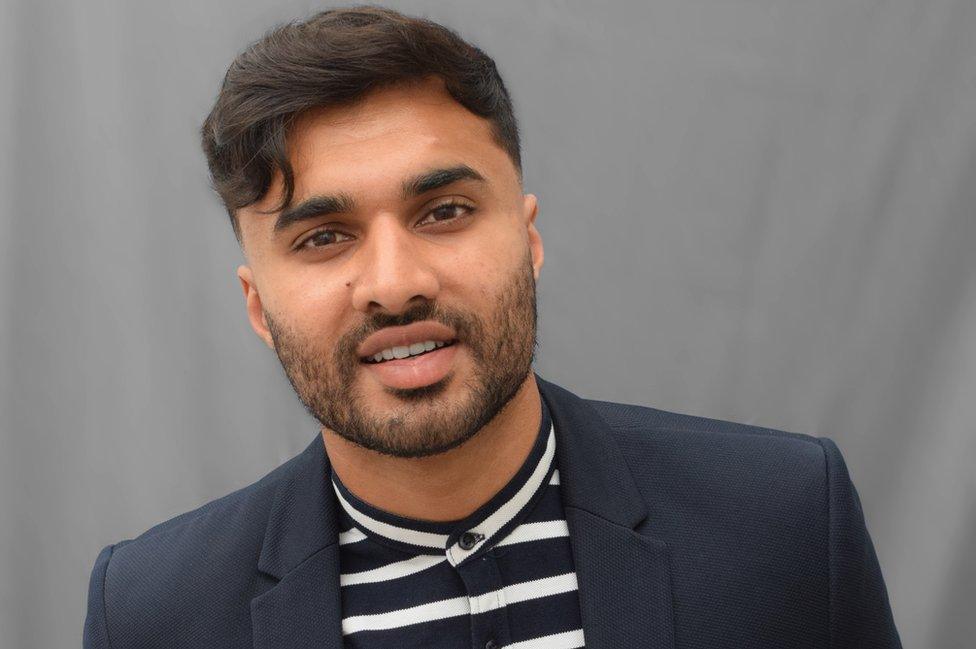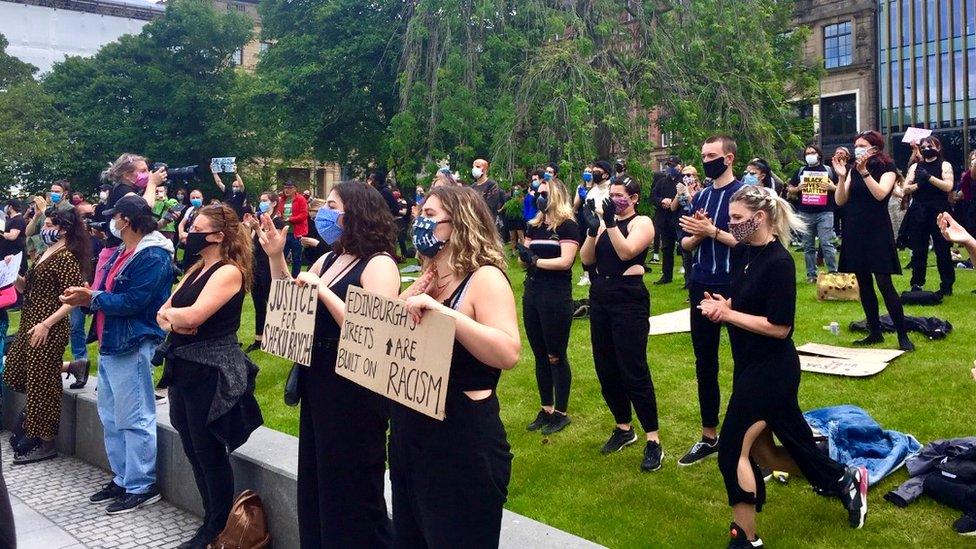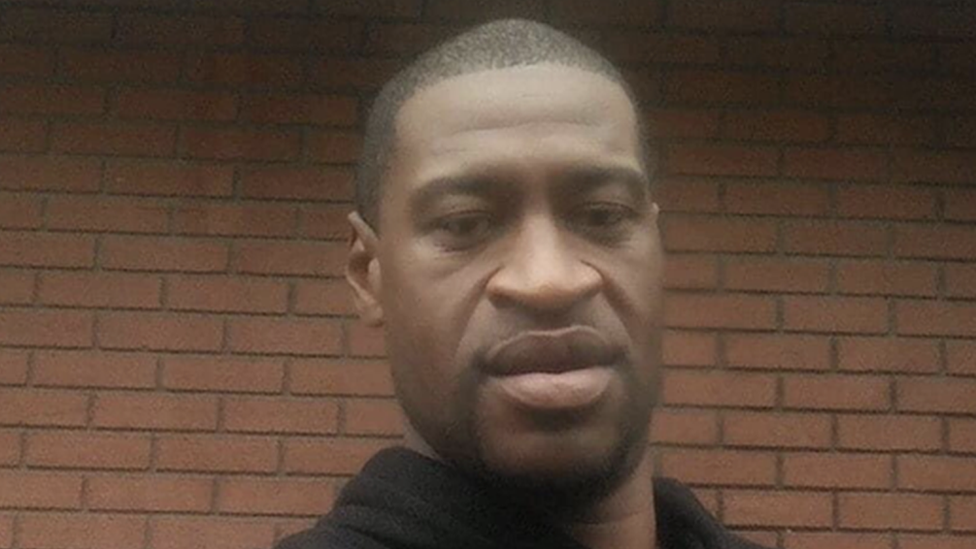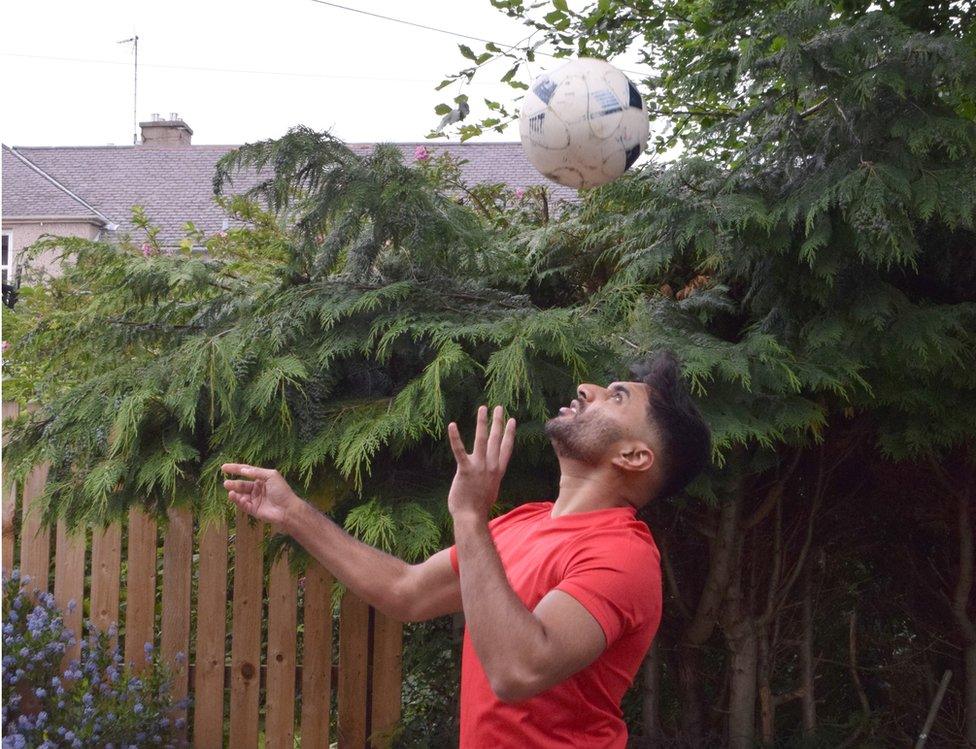'Racism protests do not get to the root of the problem'
- Published

Qasim Lozano said he saw people treating his friend's afro like a toy and even setting it on fire
A Scots man with Pakistani origins has told how protesting, sharing black squares on social media and uploading posts against racism is not getting to the root of the problem.
Qasim Lozano, 27, said microaggressions that were more subtle and less blatant forms of racism had to be stamped out first.
The death of George Floyd in the US has triggered mass anti-racism protests.
Mr Lozano told BBC Scotland about his experiences of growing up in Edinburgh.
'Systematic racism'
He said: "Over the last couple of weeks, the topic of systematic racism has been brought to the forefront as a result of police brutality in the US.
"It warms my heart to see so many people out there publicly supporting a cause that is very dear to me.
"However, some of the people who have been protesting, sharing black squares and uploading a barrage of posts against racism appear to be completely oblivious to the fact that they could have contributed to this problem."

Mass anti-racism protests have been held in Scotland recently
The former Leith Academy pupil said when he was at school he saw people treating his friend's afro like a toy, putting things in it and even setting it on fire.
For his best friend, who is black African, the racial microaggression came in the form of people telling him to rap or beatbox, mock the way his lips or nose looked, comparing him to every other black person, telling him to say particular phrases and telling him to imitate other black people in popular culture, primarily in music and movies.
Mr Lozano said when he scored two goals in his team's football final, his coach was buying the team pints and asked if he was allowed one because he presumed he might have a religion that banned alcohol consumption.

George Floyd's death in May has sparked anti-racism protests across the world
The Edinburgh Napier University business graduate said: "The reality is racism is woven deep into the very fabric of British culture and society.
"We rarely witness police beating up and shooting black men here in Edinburgh.
"In the few cases where we observe someone being explicitly and overtly racist, most people will acknowledge and agree that it is wrong."
He added: "But I want to talk about the form of racism I have endured throughout my whole life.
"The most prevalent and pervasive form of racism that goes without acknowledgement here, racial microaggression."

Mr Lozano is the third generation of his family to have been born in the UK
He said he would rather people looked at themselves and how others around them acted before taking to the streets or social media to protest about racism.
He said: "To make any real long lasting changes, you have to take a step back and look deep into yourself, into your past, into your way of thinking, into the way you act and ask: What should I have done differently? What could I have done differently?
"People need to think the next time they witness someone make a racist micro-aggression, will they only act if it offends the victim?
"And if it does offend the victim? Will they let people laugh it off as a joke?"
He said he would like the education curriculum in schools revised so that microaggressions could be highlighted and tackled.